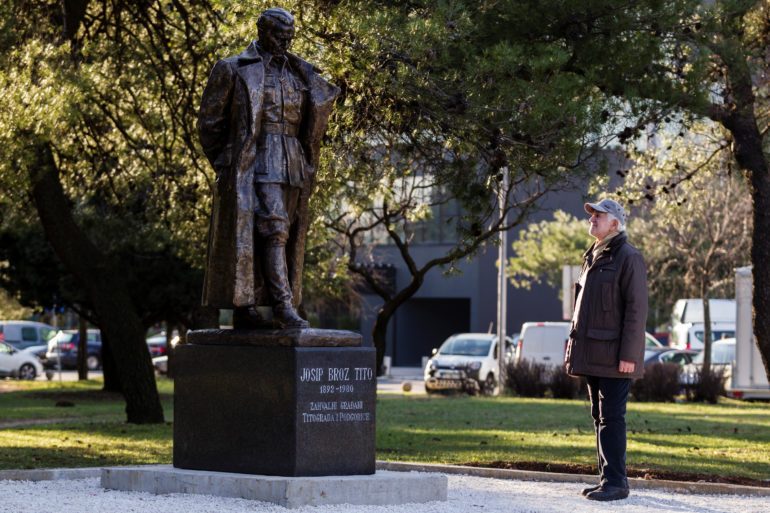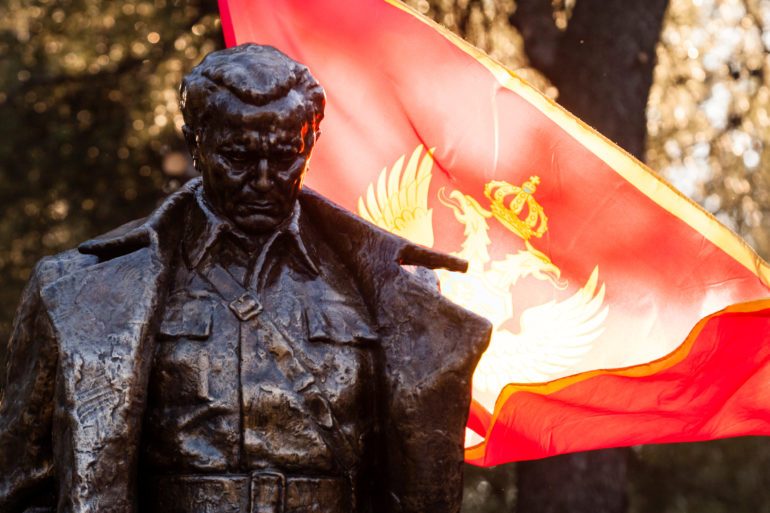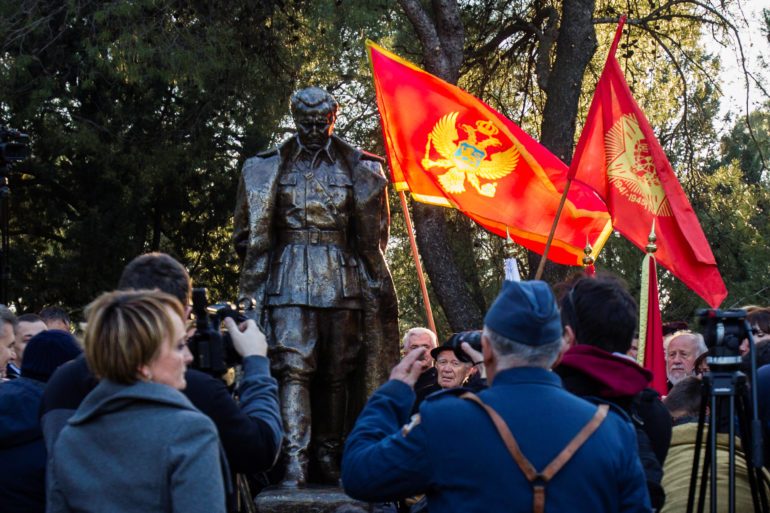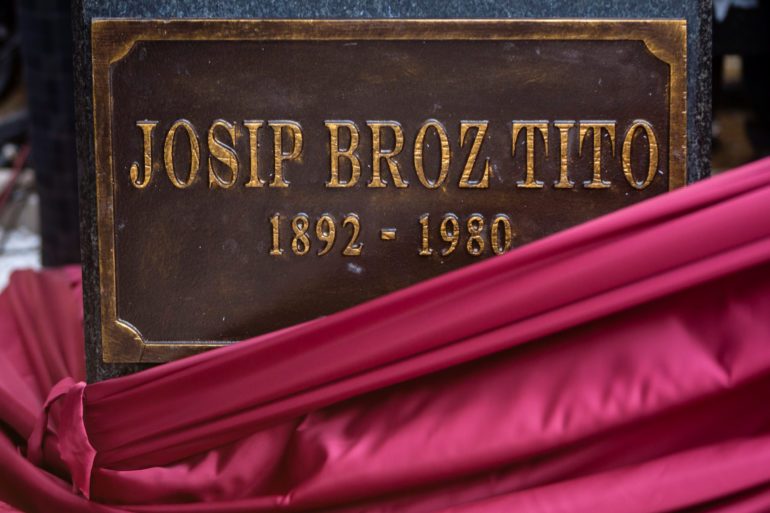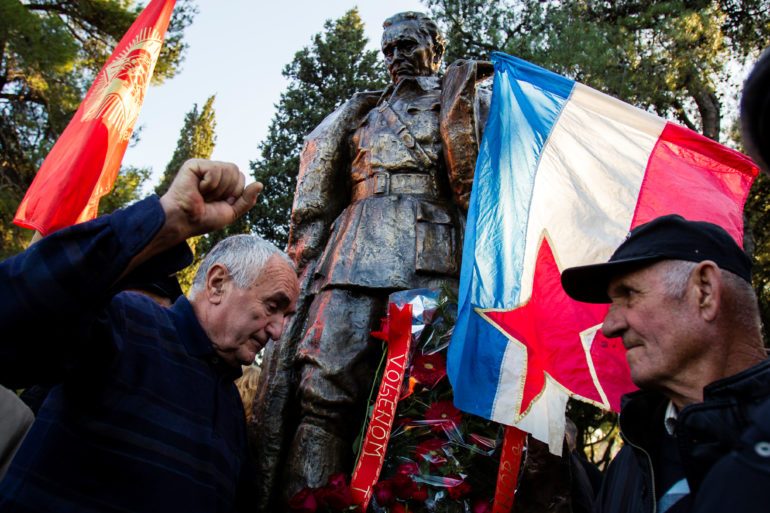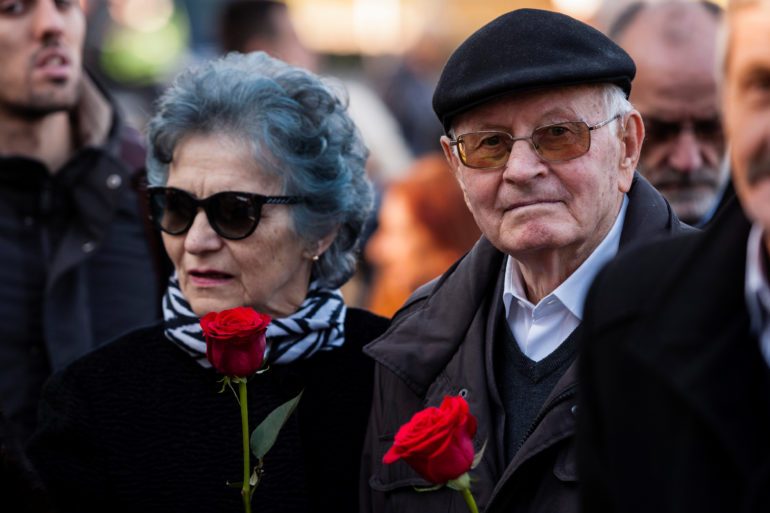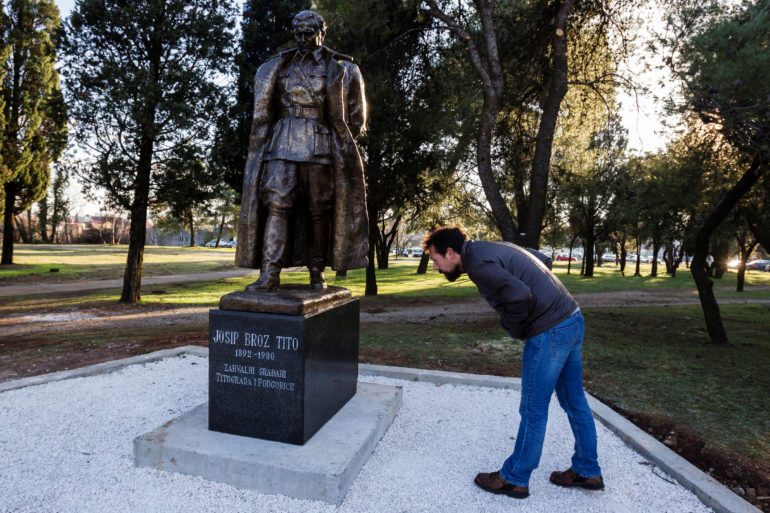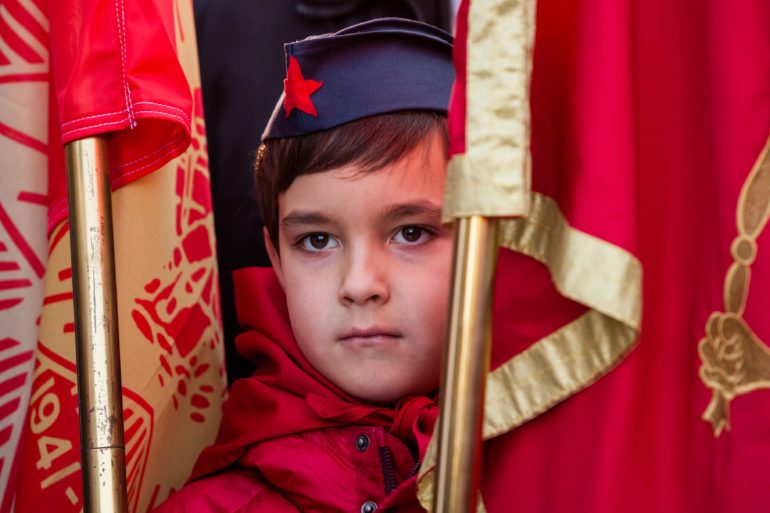Montenegro unveils monument of ex-Yugoslav communist leader Tito
PODGORICA, Montenegro (Reuters) – In a nostalgic homage to a now-defunct nation, a bronze statue of former Yugoslav leader Josip Broz Tito was unveiled on Wednesday in Montenegro’s capital Podgorica.
Tito, who led former communist Yugoslavia from the end of World War Two until death in 1980, was criticized as a totalitarian dictator by some at home and abroad.
But many of his people saw him as a benevolent ruler who kept peaceful co-existence of diverse ethnicities. The six-republic Yugoslavia started collapsing in wars a decade after his death.
The monument in Podgorica – named Titograd between 1946-1992 in his honor – was placed in a park on the initiative of the city hall and a group of World War Two communist veterans.
One of three identical statues made by sculptor Antun Augustincic in 1948, the life-size statue showing Tito in military uniform with greatcoat slung over his shoulders had been stored in a commemorative room at an army barracks.
City mayor Ivan Vukovic said it was reinstated in honor of Montenegro’s fundamental values. “Our country remains faithful to anti-fascist traditions,” he said.
During the unveiling, dozens of Tito admirers and veterans waved the former Yugoslavia’s flag with a red star on it and Communist Party colors, as well as singing revolutionary songs from World War Two.
A 2016 Gallup poll showed 65 percent of Montenegrins believed the dissolution of Yugoslavia in the 1990s was wrong.
(Reporting by Aleksandar Vasovic; Editing by Andrew Cawthorne)
